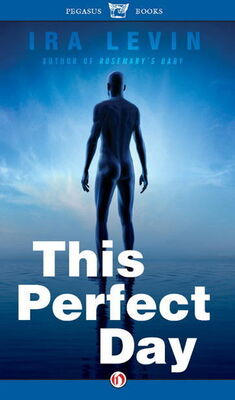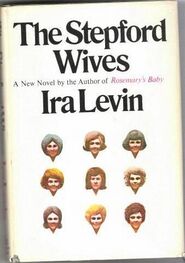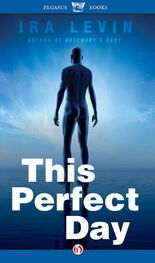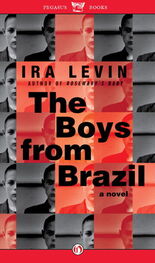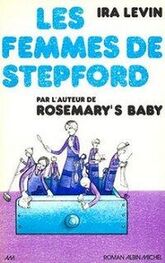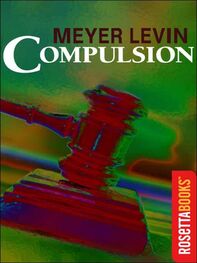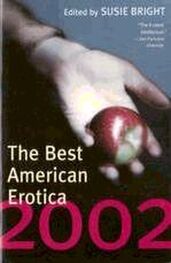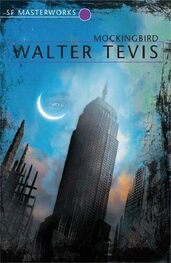Darkness and silence were outside it. He waited till he could see more clearly, then walked to the left. A giant telecomp clung to the display wall (it had been broken, hadn’t it, when he had been there before?); he passed it and stopped. Someone lay near the wall ahead, motionless.
But no, it was a stretcher, two stretchers, with pillows and blankets. The blankets Papa Jan and he had wrapped around them. The very same two, conceivably.
He stood for a moment, remembering.
Then he went on. To the door. The door that Papa Jan had pushed him through. And the scanner beside it, the first he had ever passed without touching. How frightened he had been!
This time you don’t have to push me, Papa Jan, he thought.
He opened the door a bit, looked in at the landing—brightly lit, empty—and went in.
And down the stairs into coolness. Quickly now, thinking of the boy and the woman upstairs, who might soon be coming to, crying an alarm.
He passed the door to the first level of memory banks.
And the second.
And came to the end of the stairs, the bottom-level door.
He put his right shoulder against it, held the gun ready, and turned the knob with his left hand.
He eased the door slowly open. Red lights gleamed in dimness, one of the walls of transmitting-receiving equipment. The low ceiling glowed faintly. He opened the door wider. A railed refrigerator pit lay ahead of him, blue arms upreaching; beyond it, a pillar, a pit, a pillar, a pit. The reactors were at the other end of the room, red domes doubled in the glass of the dimly lit programming room. Not a member in sight, closed doors, silence—except for a whining sound, low and steady. He opened the door wider, stepping into the room with it, and saw the second wall of equipment sparked with red lights.
He went farther into the room, caught the door edge behind him and let it pull itself away toward closing. He lowered the gun, thumbed the strap up off his shoulder, and let the kit down gently to the floor. His throat was clamped, his head torn back. A green-silk elbow was under his jaw, the arm crushing his neck, choking him. His gun-wrist was locked in a powerful hand and “You liar, liar,” Wei whispered in his ear, “what a pleasure to kill you.”
He pulled at the arm, punched it with his free left hand; it was marble, a statue’s arm in silk. He tried to back his feet into a stance for throwing Wei off him, but Wei moved backward too, keeping him arched and helpless, dragging him beneath the turning glowing ceiling; and his hand was bent around and smashed, smashed, smashed against hard railing, and the gun was gone, clanging in the pit. He reached back and grabbed Wei’s head, found his ear and wrenched at it. His throat was crushed tighter by the hard-muscled arm and the ceiling was pink and pulsing. He thrust his hand down into Wei’s collar, squeezed his fingers under a band of cloth. He wound his hand in it, driving his knuckles as hard as he could into tough ridged flesh. His right hand was freed, his left seized and pulled at. With his right he caught the wrist at his neck, pulled the arm open. He gasped air down his throat.
He was flung away, thrown flat against red-lit equipment, the torn band wound around his hand. He grabbed two handles and pulled out a panel, turned and flung it at Wei coming at him. Wei struck it aside with an arm and kept coming, both hands raised to chop. Chip crouched, his left arm up. (“Keep low, Green-eye!” Captain Gold shouted.) Blows hit his arm; he punched at Wei’s heart. Wei backed off, kicking at him. He got away from the wall, circled outward, stuffed his numbed hand down into his pocket and found the knife handle. Wei rushed at him and chopped at his neck and shoulders. With his left arm raised, he cut the knife up out of his pocket and stuck it into Wei’s middle—partway in, then hard, all the way, hilt into silk. Blows kept hitting him. He pulled the knife out and backed away.
Wei stayed where he was. He looked at Chip, at the knife in his hand, looked down at himself. He touched his waist and looked at his fingers. He looked at Chip.
Chip circled, watching him, holding the knife.
Wei lunged. Chip knifed, slashed Wei’s sleeve, but Wei caught his arm in both hands and drove him back against railing, kneeing at him. Chip caught Wei’s neck and squeezed, squeezed as hard as he could inside the torn green-and-gold collar. He forced Wei off him, turned from the railing, and squeezed, kept squeezing while Wei held his knife-arm. He forced Wei back around the pit. Wei struck with one hand at his wrist, knocked it downward; he pulled his arm free and knifed at Wei’s side. Wei dodged and spilled over the railing, fell into the pit and fell flat on his back on a cylindrical steel housing. He slid off it and sat leaning against blue pipe, looking up at Chip with his mouth open, gasping, a black-red stain in his lap.
Chip ran to the kit. He picked it up and walked back quickly down the side of the room, holding the kit on his arm. He put the knife in his pocket—it fell through but he let it—ripped the kit open and tucked its cover back under it. He turned and walked backward toward the end of the equipment wall, stopped and stood facing the pits and the pillars between them.
He backhanded sweat from his mouth and forehead, saw blood on his hand and wiped it on his side.
He took one of the bombs from the kit, held it back behind his shoulder, aimed, and threw it. It arched into the center pit. He put his hand on another bomb. A thunk sounded from the pit, but no explosion came. He took out the second bomb and threw it harder into the pit.
The sound it made was flatter and softer than the first bomb’s.
The railed pit stayed as it was, blue arms reaching up from it.
Chip looked at it, and looked at the rows of white straw-stuck bombs in the kit.
He took out another one and hurled it as hard as he could into the nearer pit.
A thunk again.
He waited, and went cautiously toward the pit; went closer, and saw the bomb on the cylindrical steel housing, a blob of white, a white clay breast.
A high-pitched gasping sound came sifting from the farthest pit. Wei. He was laughing.
These three were her bombs, the shepherd’s, Chip thought. Maybe she did something to them. He went to the middle of the equipment wall and stood squarely facing the center pit. He hurled a bomb. It hit a blue arm and stuck to it, round and white.
Wei laughed and gasped. Scrapings, sounds of movement, came from the pit he was in.
Chip hurled more bombs. One of them may work, one of them will work! (“Throw and boom,” she had said. “Glad to get them into the can.” She wouldn’t have lied to him. What had gone wrong with them?) He hurled bombs at the blue arms and the pillars, plastered the square steel pillars with flat white overlapping discs. He hurled all the “bombs,” hurled the last one clean across the room; it splattered wide on the opposite equipment wall.
He stood with the empty kit in his hand.
Wei laughed loud.
He was sitting astride pit railing, holding the gun in both hands, pointing it at Chip. Black-red smears ran down his clinging coverall legs; red leaked over his sandal straps. He laughed more. “What do you think?” he asked. “Too cold? Too damp? Too dry? Too old? Too what?” He took one hand from the gun, reached back behind him, and eased down off the railing. Lifting his leg over it, he winced and drew in breath hissingly. “Ooh Jesus Christ,” he said, “you really hurt this body. Ssss! You really did it damage.” He stood and held the gun with both hands again, facing Chip. He smiled. “Idea,” he said. “You give me yours, right? You hurt a body, you give me another one. Fair? And—neat, economical! What we have to do now is shoot you in the head, very carefully, and then between us we’ll give the doctors a long night’s work.” He smiled more broadly. “I promise to keep you ‘in condition,’ Chip,” he said, and walked forward with slow stiff steps, his elbows tight to his sides, the gun clasped before him chest-high, aimed at Chip’s face.
Читать дальше